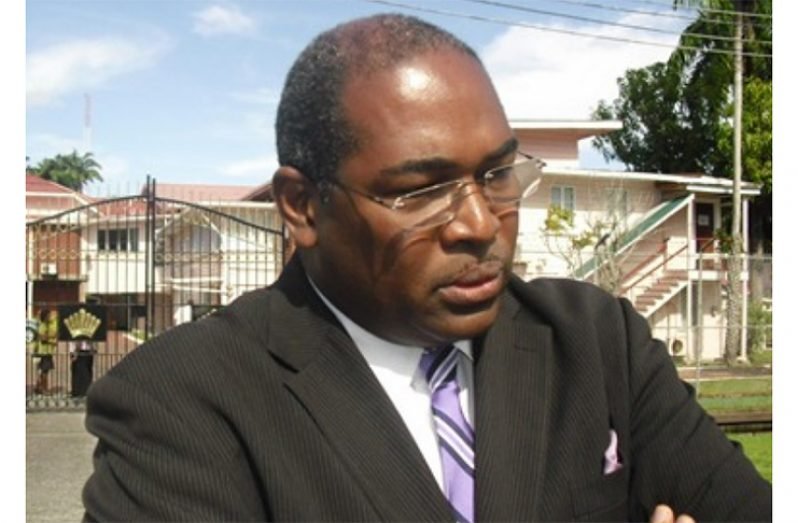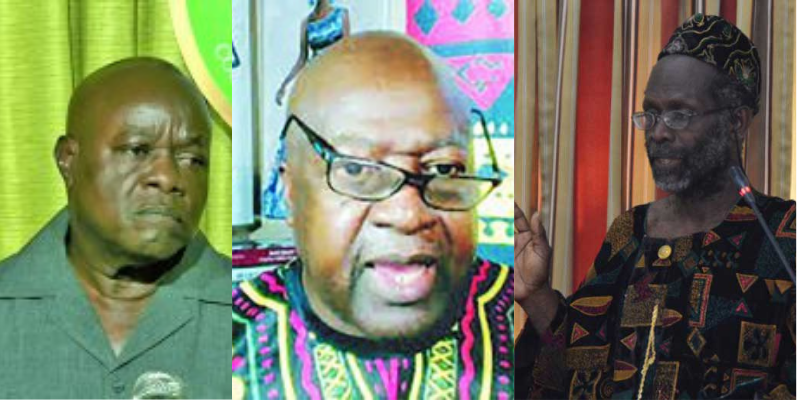Understanding Guyana’s demographic reality: A call for inclusive leadership
As Guyana approaches the 2025 elections, it is becoming increasingly clear that certain political figures are trapped in outdated ideologies that no longer reflect the reality of our diverse nation. Leaders like Aubrey Norton and David Hinds seem to ignore the country’s actual demographic makeup, continuing to operate based on assumptions rooted in the long-gone Burnham era.
Today, Afro-Guyanese make up approximately 29.1% of the population. While this community plays a vital role in Guyana’s development, no single ethnic group can independently claim a democratic mandate. Yet, Norton and Hinds attempt to shape a national narrative by appealing solely to this minority, often sowing division and portraying Indo-Guyanese, who represent 39.8% of the population, as racist. This outdated and divisive rhetoric belongs to the 1960s, not to a modern, forward-looking Guyana.
Even more critically, large segments of the Afro-Guyanese community are no longer aligning with these leaders. Thousands of former PNC supporters have reportedly shifted to the People’s Progressive Party (PPP), which clearly indicates that people want inclusive governance, not racial polarization.
Despite this shift, four prominent Afro-Guyanese leaders—Aubrey Norton, Nigel Hughes, David Hinds, and Takuma Ogunseye—are competing to dominate the same 29.1% voter base. They are engaged in a political contest that overlooks the broader Guyanese population, particularly the Indo-Guyanese community, Amerindians, and other mixed ethnic groups, which make up 71% of the population and represent a significant portion of the electorate.

These leaders must recognize a fundamental truth of democracy: winning an election cannot be accomplished by appealing to a narrow ethnic base while neglecting the majority. Accusations of racism and the ongoing resurgence of Burnham-era tactics—such as election rigging—will not be successful in modern-day Guyana. The people will reveal and reject any attempts to manipulate the 2025 elections.
An undeniable truth about Aubrey Norton’s political stance is that his reluctance to engage with Indo-Guyanese voices, even within his party, is becoming increasingly clear. We rarely see him associating with or sharing a platform with prominent PNC Indo-Guyanese figures, emphasizing a lack of inclusivity.
Let’s be very clear—Guyana is not an African country on the African continent. It is a multiethnic democracy in South America where progress can only be achieved through unity, respect, and community collaboration. The future belongs to leaders who unite people, not to those who divide them for political gain.
Despite increasing public criticism of controversial statements made by Working People’s Alliance (WPA) Co-Leader Dr. David Hinds, Aubrey Norton, Leader of the People’s National Congress Reform/Alliance for National Unity (PNC/APNU), has firmly refused to denounce the inflammatory rhetoric.
During a press conference on Friday at Congress Place, Sophia Norton was asked to comment on the disparaging remarks made by Hinds, which targeted both Afro- and Indo-Guyanese who chose to support other political parties. In response, Norton asserted:
“…There’s no way we will condemn David.”
Rather than rebuking or distancing himself from the WPA Co-Leader’s controversial statements, Norton referred to Hinds as a “passionate” and “intelligent” political figure. He also downplayed the issue, claiming that the PNC/APNU is not accountable for the WPA’s actions.
“When his views conflict, we must deal with them,” Norton explained. “But I would say David Hinds has been in politics for a long time. He knows that he has to choose what he says. And I think if he chose to go whichever road he went down, it was after a conscious decision.”
Norton emphasized that the WPA is an independent partner within the coalition, stating:
“We are not answerable for the WPA. Hinds has a right, as a member of the WPA, to express his views.”
Dr. Hinds, known for his provocative rhetoric on race and politics, has faced criticism for recent remarks on his show Politics 101, where he directed vulgar insults at Afro-Guyanese who support the governing People’s Progressive Party/Civic (PPP/C). He stated:
“And some of you lick a**, lick beet**. Black people are running around the place [saying], ‘I am campaigning for the return of President Ali.’ Lick backside; that’s what y’all are. All of y’all.”
He criticized Afro-Guyanese voters for selecting leaders based on policy instead of race:
“Y’all prefer to lick somebody else’s a** and find everything that is wrong about black leaders.”
Hinds emphasized that race should be a key factor in discussions about leadership in Guyana, pointing to the country’s racially divided society.
The WPA has faced scrutiny in the past over racially charged rhetoric. In 2023, Executive Member Tacuma Ogunseye was granted $100,000 bail after being arrested for allegedly attempting to incite racial hostility. During a public gathering in Buxton, Ogunseye made the following controversial statement:
I don’t understand how people complain about being oppressed while holding guns in their hands. They are the majority in the army and the police, yet they still say they are oppressed. They also claim that our problems are self-created. Whenever we aim those guns in the right direction, it’s all over.
As tensions surrounding racially divisive speech continue to rise, Norton’s steadfast refusal to denounce his coalition partner’s remarks is expected to ignite further national debate.
It is vital for the African leaders in Guyana to reflect deeply on one critical truth: using racism as a political tool is not only outdated; it is a profound mockery of the rich and dignified cultural heritage of Africa itself. Throughout the African continent, cultures are built on wisdom, unity, and respect—values that directly contradict the divisive rhetoric some leaders continue to promote in Guyana.
Unfortunately, some political figures in Guyana still seem trapped in a mindset reminiscent of the dark ages—relying on fear, racial division, and outdated ideologies to gain support. However, in a modern democracy, such tactics will no longer resonate with an electorate that is increasingly aware, more united, and focused on development and peace.
The truth is simple: these leaders are set to lose not because of their ethnicity, but because they offer nothing meaningful or inclusive to represent an entire nation. They do not speak for all Guyanese. Their politics lack vision, inclusivity, and substance. In 2025, the people of Guyana will make it clear that leadership must be earned through merit, not manipulation.





